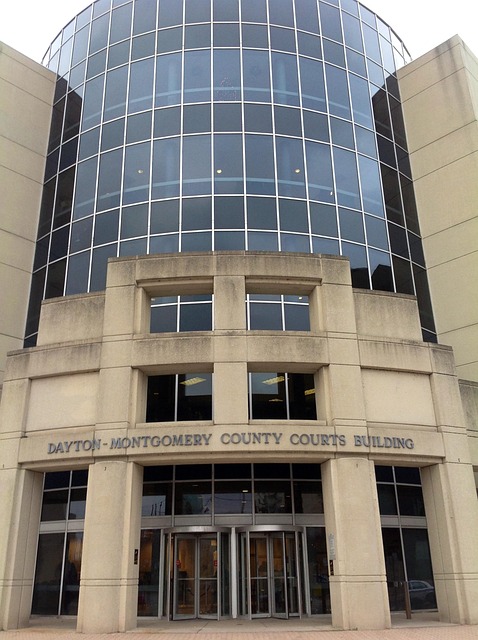Financial fraud, encompassing identity theft, money laundering, and investment scams, poses a dynamic threat across sectors. Traditional detection methods using manual processes are inadequate against sophisticated schemes, as seen in rising costs associated with hiring appeal lawyers. Advanced technologies like AI, ML, and data analytics offer high-accuracy predictions and proactive approaches to fraud detection. Preventing financial fraud involves balancing robust security systems (including legal counsel) with potential savings from avoiding fraudulent activities. Conducting a Cost-Benefit Analysis (CBA) helps businesses decide whether to invest in fraud prevention, demonstrating its long-term benefits in reducing future scams and minimizing legal fees.
Financial fraud is a pervasive global issue, with sophisticated criminals constantly evolving their tactics. This article delves into the critical realm of financial fraud detection, exploring various types and their profound impact on individuals and institutions. We compare traditional methods, highlighting their limitations, before showcasing the transformative potential of advanced technologies. Furthermore, we conduct a cost-benefit analysis, considering whether investing in prevention is more lucrative than incurring the significant expense of hiring an appeal lawyer due to fraudulent activities.
- Understanding Financial Fraud: Types and Impact
- Traditional Detection Methods and Their Limitations
- Advanced Technologies in Fraud Detection
- Cost-Benefit Analysis: Hiring an Appeal Lawyer vs. Preventing Fraud
Understanding Financial Fraud: Types and Impact

Financial fraud is a complex and ever-evolving challenge that impacts individuals, businesses, and even the broader philanthropic and political communities. It encompasses a range of deceptive practices, from identity theft to money laundering and investment scams. Understanding these various types of financial fraud is crucial in mounting effective defenses and mitigating potential losses. Credit card fraud, for instance, involves unauthorized use of card information, while insurance fraud includes false claims for compensation. These acts not only harm the victims but also distort market dynamics and erode public trust.
The impact of financial fraud extends beyond monetary losses. It can lead to reputational damage, legal complications, and even personal distress for those affected. Victims may find themselves entangled in lengthy legal battles, especially when dealing with sophisticated perpetrators. This is where a skilled general criminal defense attorney becomes invaluable. Their expertise in navigating complex legal systems and building winning challenging defense verdicts can help protect individuals’ rights and secure justice. Moreover, understanding the cost of hiring an appeal lawyer can be a key factor for those facing significant financial fraud charges, as it offers a potential avenue for reversal or reduced sentences.
Traditional Detection Methods and Their Limitations

In the realm of financial fraud detection, traditional methods have long relied on manual processes and rule-based systems. These approaches involve examining transactions, comparing data points, and identifying anomalies through meticulous analysis by investigators. However, with the increasing complexity of financial crimes, these techniques face significant limitations. The sheer volume of data generated from corporate and individual clients across various financial institutions can overwhelm traditional methods, making it challenging to detect fraudulent activities promptly.
Moreover, rule-based systems often struggle to keep up with evolving fraud schemes that employ sophisticated techniques. White-collar defense attorneys, known for their expertise in navigating all stages of the investigative and enforcement process, highlight the cost of relying solely on these traditional methods. The financial burden of hiring appeal lawyers and the potential for missed fraudulent signals underscore the need for revolutionary changes in fraud detection to stay ahead of criminals in today’s digital era.
Advanced Technologies in Fraud Detection

In the ever-evolving landscape of financial fraud detection, advanced technologies are revolutionizing how institutions and regulatory bodies identify and mitigate risks. Artificial Intelligence (AI), Machine Learning (ML), and data analytics have emerged as powerful tools in this arena. These innovative solutions can analyze vast datasets, uncover intricate patterns, and predict fraudulent activities with remarkable accuracy. By learning from historical data and adapting to new trends, AI-driven systems offer an unprecedented track record in fraud detection, ensuring a proactive approach rather than merely reactive.
The integration of advanced technologies has proven particularly effective in high-stakes cases where the cost of hiring appeal lawyers could be astronomical if fraud is successfully detected and prosecuted. ML algorithms can sift through complex financial transactions, identify anomalies, and flag potential red flags, ultimately leading to complete dismissal of all charges in some instances. This not only reduces legal expenses but also safeguards the reputation of individuals and businesses wrongfully accused, demonstrating the significant impact of these technologies in navigating financial fraud’s intricate labyrinthine.
Cost-Benefit Analysis: Hiring an Appeal Lawyer vs. Preventing Fraud

When considering measures to prevent financial fraud within a respective business, it’s crucial to balance the cost of implementing robust security systems against potential savings in avoiding fraudulent activities. While hiring an appeal lawyer may seem like a significant expense initially, particularly for smaller enterprises, the long-term benefits can be substantial. Legal counsel specializing in fraud cases can help establish comprehensive prevention strategies that not only safeguard assets but also provide valuable insights into identifying vulnerabilities. This proactive approach can prevent costly mistakes and protect the interests of your business, for his clients, and the wider philanthropic and political communities.
A Cost-Benefit Analysis (CBA) should be conducted to evaluate the financial implications. By comparing the cost of hiring an appeal lawyer to the potential losses from fraud, businesses can make informed decisions. Effective fraud prevention strategies, when successfully implemented, can reduce the likelihood of future scams, minimizing legal fees required for resolution. This analysis underscores the importance of recognizing that investing in fraud detection and prevention is a wise financial move, ensuring long-term sustainability and integrity within any enterprise.
In the ongoing battle against financial fraud, combining traditional methods with advanced technologies offers the most comprehensive approach. While traditional detection techniques have their place and limitations, emerging tools like artificial intelligence and machine learning significantly enhance accuracy and speed. Considering the high cost of hiring an appeal lawyer for complex cases, investing in robust fraud prevention systems can prove more beneficial for organizations in the long run, ensuring financial stability and protecting stakeholders from potential losses.






